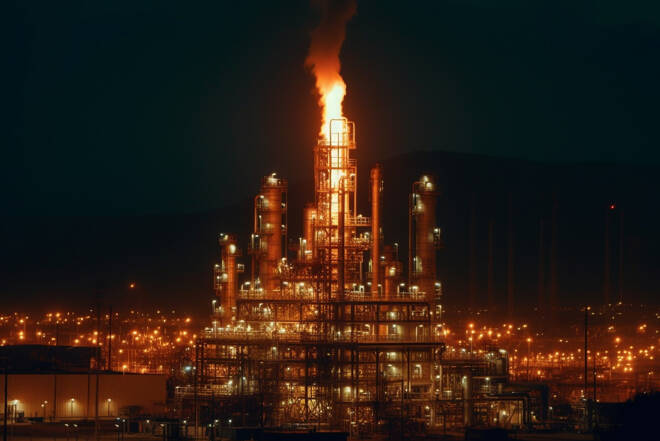Advertisement
Advertisement
Natural Gas News: Can Lower Rig Count and LNG Surge Fuel Market Rebound?
By:
Key Points:
- Front-month gas futures fall despite a slight overall weekly rise.
- U.S. gas rig count hits its lowest level since January 2022.
- Optimism persists among producers despite current low prices.
US Natural Gas Prices Dip to One-Week Low
Last week, U.S. natural gas futures experienced a 0.24% rise, despite straddling a one-week low. This downward trend was influenced by forecasts of milder weather, abundant gas storage, and low gas flows to LNG export plants, primarily due to service outages at Freeport LNG’s Texas plant. Freeport LNG announced that two of its three liquefaction trains would be offline until May for testing and repairs. Consequently, front-month gas futures for April delivery on the New York Mercantile Exchange dropped to their lowest close since March 15.
Last week, U.S. Natural Gas settled at $1.659, up $0.004 or +0.24%.
EIA Storage and Rig Count Impact
The Energy Information Administration (EIA) estimated that current gas stockpiles were about 41% above typical levels. This excess in storage, coupled with a decline in gas production, influenced the market. The reduction in output, about 4% over the past month, was driven by reduced drilling activities from major firms like EQT and Chesapeake Energy. Baker Hughes reported that the U.S. gas rig count had dropped to its lowest since January 2022, reflecting this decrease in production.
Supply and Demand Trends
LSEG data showed a drop in gas output in the Lower 48 U.S. states to 100.2 billion cubic feet per day (bcfd) in March, down from 104.1 bcfd in February. However, gas demand, including exports, is expected to rise in the short term with cooler weather, before decreasing as conditions become milder. Gas flows to major U.S. LNG export plants also decreased, further influencing market dynamics.
Natural Gas Producers’ Outlook Amid Low Prices
Despite the current low prices, energy executives remain optimistic about the future of LNG. They anticipate a surge in demand from new LNG plants, which could balance the market and increase prices. However, concerns about oversupply, infrastructure constraints, and the evolving energy landscape pose challenges. There’s a growing focus on renewable energy sources, yet the growing energy demands from sectors like AI and digital technologies could bolster natural gas usage.
Weekly Forecast
Considering the recent trends in storage levels, production cutbacks, and fluctuating demand, the natural gas market appears to be in a state of flux. The short-term outlook suggests a bearish trend due to the current oversupply and reduced export capacities. However, the potential increase in demand from cooler weather and the longer-term prospects of new LNG facilities could gradually stabilize and uplift the market. In the coming week, prices are expected to remain under pressure, reflecting these mixed influences.
About the Author
James Hyerczykauthor
James Hyerczyk is a U.S. based seasoned technical analyst and educator with over 40 years of experience in market analysis and trading, specializing in chart patterns and price movement. He is the author of two books on technical analysis and has a background in both futures and stock markets.
Advertisement
